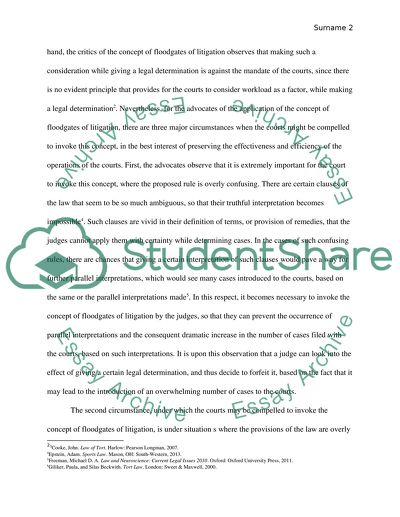Cite this document
(“Floodgates of litigation Essay Example | Topics and Well Written Essays - 1750 words”, n.d.)
Retrieved de https://studentshare.org/law/1470228-why-are-the-courts-so-concerned-about-the-so
Retrieved de https://studentshare.org/law/1470228-why-are-the-courts-so-concerned-about-the-so
(Floodgates of Litigation Essay Example | Topics and Well Written Essays - 1750 Words)
https://studentshare.org/law/1470228-why-are-the-courts-so-concerned-about-the-so.
https://studentshare.org/law/1470228-why-are-the-courts-so-concerned-about-the-so.
“Floodgates of Litigation Essay Example | Topics and Well Written Essays - 1750 Words”, n.d. https://studentshare.org/law/1470228-why-are-the-courts-so-concerned-about-the-so.


